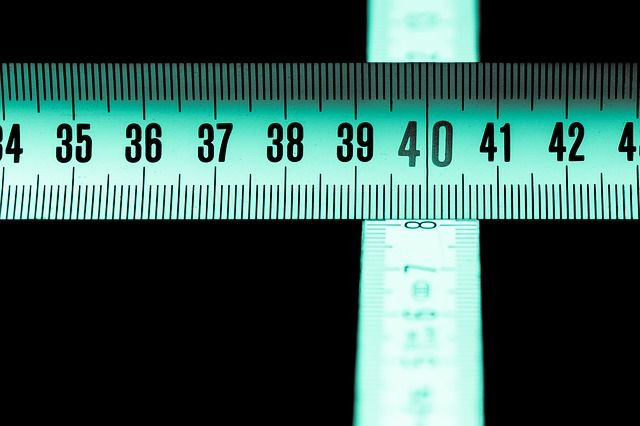No One's A Winner On 'The Biggest Loser': Contestants Have Slower Metabolisms, Often Regain Lost Weight

It seems there are rarely any winners on The Biggest Loser.
This Monday, researchers from the National Institutes of Health (NIH) published in the journal Obesity what’s sure to be a disheartening study for many. After tracking down 14 of the 16 contestants who took part in the long-running reality show’s eighth season, they found that all but one had regained a significant portion of their lost weight six years later, with a third putting all or more of it back on. One stark reason for the weight regain was that the contestants’ resting metabolisms had permanently slowed down following their dramatic weight loss — a phenomenon known as metabolic adaptation. On average, the weight loss led their bodies to burn 500 fewer calories a day than they did prior to the competition.
“It is frightening and amazing,” the study’s senior author, Dr. Kevin Hall, a member of the NIH’s National Institute of Diabetes and Digestive and Kidney Diseases, told The New York Times. “I am just blown away.”
The Bounce Back Effect
In addition to a lower metabolism, the contestants also had persistently low levels of leptin, a hormone that triggers hunger when in short supply. While the contestants’ leptin levels had risen somewhat since the show, they remained lower than they had been before they started the show’s intensive, 30-week diet and exercise regimen. And the weight regain occurred even as the contestants had, on average, maintained the same level of physical activity as they had immediately following the show.
The study is only the latest to demonstrate the myriad of ways the body conspires to resist drastic changes to our weight. Other research has shown a similarly lasting readjustment of hunger hormones like leptin and peptide YY one year after a very-low-calorie diet. And a 2015 review from The Lancet plainly declared that changes in “brain chemistry, metabolism, and hunger and satiety hormones, which occur during attempts to lose weight, make it difficult to definitively lose weight."
Metabolic adaptation, however, has been trickier to spot. While plenty of human and animal studies have shown a permanent slowing effect of weight loss, some haven’t. According to the researchers, theirs is the longest follow-up study examining that question directly, adding more credibility to the idea.
Though some critics may contend that these changes were largely caused by how quickly the contestants lost weight, rather than the weight loss itself, Hall’s team notes that more recent research hasn’t shown that to be the case — a 2014 study found the likelihood of weight regain wasn’t any different between people who trimmed the pounds gradually or rapidly.
Few Winners
Former contestants of The Biggest Loser like Kai Hibbard have been vocal about the unique dangers of the show, however. More than a decade after having lost 122 pounds during its third season, Hibbard still suffers from hair loss, thyroid issues, and irregular periods. Others have faced kidney damage and chronic physical injuries. “The whole f- -king show is a fat-shaming disaster that I’m embarrassed to have participated in,” she told the New York Post in 2015.
And the various interviews of the study participants conducted by The Times depict a particularly bleak picture of their post-show experiences. “All my friends were drinking beer and not gaining massive amounts of weight,” Sean Cahill, who has regained 100 pounds since the finale, told The Times. “The moment I started drinking beer, there goes another 20 pounds. I said, ‘This is not right. Something is wrong with my body.’” Cahill is currently 295 pounds and and his body now burns 800 fewer daily calories than before.
The same is true of the one contestant who has maintained and suppressed her original weight loss, Erinn Egbert. “What people don’t understand is that a treat is like a drug,” Egbert, who lost nearly 90 pounds during the competition and currently weighs around 155 pounds, told The Times. “Two treats can turn into a binge over a three-day period. That is what I struggle with.”
Is Weight Loss Worth It?
Despite their findings, though, Hall and his colleagues are still optimistic about the virtues of long-term weight loss, noting that the contestants on average kept more weight off than people in other lengthy weight loss experiments have. Rather than give up on the idea of losing weight completely, they and others like Dr. Joseph Proietto of the University of Melbourne, Australia, believe there needs to be a dedicated effort to find countermeasures against our body’s urges to maintain weight.
“We desperately need agents that will suppress hunger and that are safe with long-term use,” Proietto told The Times.
Dr. Deb Burgard, a California psychologist and eating disorder specialist who has often spoken out against discrimination toward overweight individuals, strongly disagrees however. “There is a tremendous reluctance to engage with the data and its implications,” she told Medical Daily. “People are still talking about ‘solutions’ like medications to eliminate hunger or massive therapeutic teams for life — and I think clinicians do not want to disappoint higher weight people who are desperate to change their weight. We have to grapple with the facts here and open our minds to what we can do to support the well-being of people at every weight.”
And she is particularly taken back by the insistence that long-term weight loss is a viable or even worthwhile public health intervention. “Weight-suppressed people are not the same physiologically as people who were never heavier. This whole assumption that weight-suppressed people will have the risk profile of never-heavier people has never been tested — because people regain weight. And the weight loss attempt makes them less healthy in the long run.” she said. “People who maintain weight loss are not physiologically different from the people I treat for restrictive eating disorders. We should not be prescribing for fat people what we diagnose as eating disordered in thin people.“
Making people truly healthier will require abandoning weight as the gold standard of a well-lived life and respecting the diversity of people’s body sizes, she added. “That shift would be an epic change. It would prevent harmful interventions to make everyone one size and it would prevent the harm from social rejection and discrimination based on weight.”
Source: Fothergill E, Guo J, Howard L, et al. Persistent Metabolic Adaptation 6 Years After “The Biggest Loser” Competition. Obesity. 2016.



























